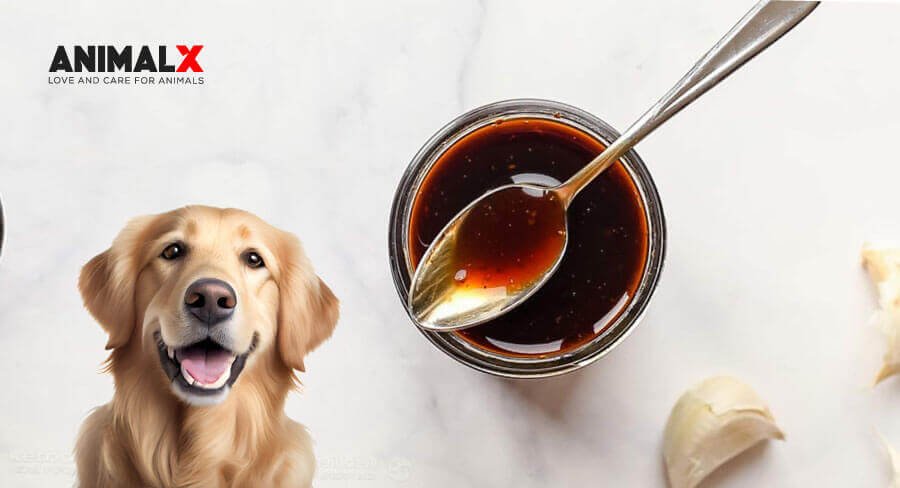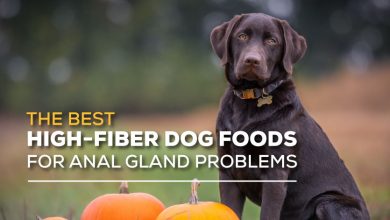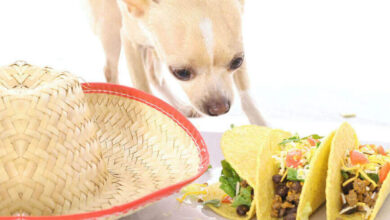Can Dogs Have Teriyaki Sauce?
You are curious about whether can dogs have teriyaki sauce? The truth about whether dogs can have teriyaki sauce may surprise you. In this comprehensive guide, we will explore the potential risks and benefits of feeding teriyaki sauce to dogs, as well as the importance of understanding safe foods for our canine friends.
When it comes to our dogs, their well-being is always a top priority. As pet owners, we want to ensure that our four-legged friends are not only happy but also healthy. This leads us to question whether certain human foods, like teriyaki sauce, are safe for our dogs to consume. By uncovering the truth about feeding teriyaki sauce to dogs, we can make informed decisions and keep our pets’ best interests at heart.
Teriyaki sauce has become increasingly popular in the culinary world, known for its delectable blend of flavors. Typically used in Asian cuisines, this sauce combines soy sauce, sugar, vinegar, and various seasonings to create a mouthwatering taste sensation. The sweetness of the sauce, coupled with its savory notes, has made it a favorite among many food enthusiasts.
As responsible pet owners, it’s vital for us to have a good understanding of what foods are safe for our dogs to consume. While we may be tempted to share our meals with them, it’s crucial to remember that not all human foods are suitable for our canine companions. Certain ingredients and seasonings commonly found in teriyaki sauce, for example, may pose potential risks to our dogs’ health. By being aware of safe food choices, we can ensure that our dogs receive a balanced and appropriate diet.
Understanding Teriyaki Sauce
Teriyaki sauce is a flavorful condiment that has gained immense popularity, known for its unique blend of sweet and savory flavors. But what exactly is teriyaki sauce, and can dogs have teriyaki sauce? In this article, we will delve into the details of teriyaki sauce, its common ingredients, its nutritional value, and why it’s important to consider the dietary needs of our canine companions.
What is Teriyaki Sauce?
Teriyaki sauce is a classic Japanese sauce that originated in the 17th century. It is typically made from a combination of soy sauce, sugar or honey, mirin (a sweet rice wine), and sometimes ginger and garlic. The sauce is then cooked down to a thick and glossy consistency, resulting in a rich and flavorful glaze that is commonly used in Asian cuisine.
Common Ingredients in Teriyaki Sauce
The key ingredients in teriyaki sauce include soy sauce, which provides the salty and umami flavor, and sugar or honey, which adds sweetness and helps create a thick consistency. Additional ingredients like mirin, ginger, and garlic enhance the overall taste profile, providing a balance of flavors.
Nutritional Value and Potential Health Benefits for Humans
Teriyaki sauce, when consumed in moderation, can offer some nutritional benefits for humans. It contains essential amino acids from soy sauce, which are important for protein synthesis in the body. However, it’s worth noting that teriyaki sauce can also be high in sodium and sugar, so individuals with specific dietary restrictions should exercise caution when consuming it.
Cautionary Note: Dogs Have Different Dietary Needs
While teriyaki sauce may be a delicious addition to our meals, it’s important to recognize that dogs have different dietary requirements than humans. Certain ingredients commonly found in teriyaki sauce, such as high sodium content and artificial additives, can pose risks to our furry friends. Dogs have more sensitive digestive systems and may react negatively to these ingredients, potentially leading to digestive upset or other health issues.

Can Dogs Eat Teriyaki Sauce?
As a responsible dog owner, it’s crucial to be aware of what foods are safe for your furry friend. Teriyaki sauce, although tempting, can pose potential risks and negative effects on a dog’s health. In this article, we will explore the dangers of feeding teriyaki sauce to dogs, the impact it can have on their digestive system, and the specific risks associated with ingredients like garlic and onion.
A. The Dangers of Feeding Teriyaki Sauce to Dogs
- High Sodium Content and its Impact on Dogs: Teriyaki sauce is known for its high sodium content, which can be detrimental to a dog’s health. Excessive sodium intake can lead to dehydration, electrolyte imbalances, and even kidney problems. Dogs are more sensitive to sodium than humans, making teriyaki sauce a potential risk for their overall well-being.
- Artificial Additives and Preservatives in Teriyaki Sauce: Many teriyaki sauce brands contain artificial additives and preservatives to enhance flavor and extend shelf life. These additives, such as artificial sweeteners or flavor enhancers, can be harmful to dogs. They may cause digestive issues, allergic reactions, or even toxic effects.
- Potential Allergic Reactions in Dogs: Teriyaki sauce often contains ingredients like soy, wheat, or garlic, which are common allergens for dogs. Allergic reactions can manifest as skin irritations, gastrointestinal disturbances, or respiratory problems. It’s essential to recognize the signs of an allergic reaction and avoid exposing your dog to potential allergens.
B. The Impact of Teriyaki Sauce on a Dog’s Digestive System
Dogs have sensitive digestive systems, and feeding them teriyaki sauce can disrupt their natural balance. The rich flavors, spices, and high sugar content in teriyaki sauce may lead to gastrointestinal issues, including diarrhea, vomiting, or upset stomach. Such disruptions can cause discomfort and affect your dog’s overall well-being.
C. Specific Risks Associated with Garlic and Onion in Teriyaki Sauce
Garlic and onion are commonly found in teriyaki sauce recipes. These ingredients, while harmless to humans in moderate amounts, can be toxic to dogs. Garlic and onion contain compounds that can damage a dog’s red blood cells and lead to a condition called hemolytic anemia. Even small quantities of garlic or onion can pose a significant risk to a dog’s health.
Read More: How to Prepare Vegetables for Dogs?
Safe Alternatives and Healthy Treats
We will explore recommended alternatives to teriyaki sauce, including plain cooked meats, natural unseasoned vegetables, and dog-friendly homemade sauces and marinades. We will also provide tips on preparing homemade teriyaki-like sauces using dog-safe ingredients, along with guidance on portioning and moderation.
Recommended Alternatives to Teriyaki Sauce for Dogs
- Plain Cooked Meats: Opt for chicken, turkey, or beef that is cooked without any seasonings or additives. These protein-rich options are not only delicious but also safe for your dog to enjoy.
- Natural and Unseasoned Vegetables: Consider offering your dog a variety of cooked vegetables like carrots, green beans, or sweet potatoes. Ensure they are prepared plain, without any salt or seasonings, to maintain their nutritional value and safety.
- Dog-friendly Homemade Sauces and Marinades: You can create your own sauces and marinades using dog-safe ingredients. Low-sodium broth, unsweetened applesauce, or even a dash of dog-friendly herbs like parsley can add flavor to your dog’s meals.
Tips for preparing homemade teriyaki-like sauces for dogs
- Recipe Ideas using Dog-safe Ingredients: Experiment with homemade sauces using ingredients safe for dogs. Combine low-sodium broth, natural sweeteners like honey, and dog-friendly herbs to create flavorful alternatives to teriyaki sauce.
- Proper Portioning and Moderation: Remember to offer sauces in moderation, using them as a complement to your dog’s regular diet. Proper portioning ensures that your dog receives balanced nutrition without overwhelming their system.
By embracing these safe alternatives and homemade options, you can provide your dog with tasty treats and satisfying meals. Always prioritize your dog’s health and consult with your veterinarian for personalized guidance. With a little creativity and consideration, you can keep your furry companion happy and nourished while steering clear of teriyaki sauce’s potential risks.
Signs of Teriyaki Sauce Poisoning in Dogs
Can dogs have teriyaki sauce? While teriyaki sauce may be a delicious addition to our meals, it can be potentially toxic to our furry companions. It’s important to be aware of the signs of teriyaki sauce poisoning in dogs and take immediate action if you suspect your dog has consumed it. In this article, we will explore the common symptoms of teriyaki sauce toxicity, the steps to take if your dog has ingested teriyaki sauce, and the vital importance of contacting a veterinarian without delay.
Common Symptoms of Teriyaki Sauce Toxicity
When dogs consume teriyaki sauce, they may exhibit various symptoms of poisoning. These can include:
- Gastrointestinal Issues: Vomiting, diarrhea, and abdominal pain are common signs of teriyaki sauce poisoning. The rich flavors, high salt content, and artificial additives in teriyaki sauce can irritate a dog’s stomach and lead to digestive distress.
- Increased thirst and Urination: The high sodium content in teriyaki sauce can cause dogs to become dehydrated. Excessive thirst and frequent urination may indicate a reaction to the sauce.
- Lethargy and Weakness: Dogs affected by teriyaki sauce poisoning may become lethargic, weak, or show signs of fatigue. This can be attributed to the impact of toxic substances on their overall well-being.
Steps to Take if you suspect Your Dog Has Consumed Teriyaki Sauce
If you suspect that your dog has ingested teriyaki sauce, it’s crucial to act swiftly and responsibly. Follow these steps:
- Remove Access to Teriyaki Sauce: Prevent further consumption by removing any remaining teriyaki sauce from your dog’s reach.
- Observe your Dog’s Symptoms: Take note of any symptoms or changes in behavior your dog is experiencing. This information will be valuable when speaking to a veterinarian.
- Contact a Veterinarian: Call your veterinarian immediately and provide them with detailed information about your dog’s condition and the possible ingestion of teriyaki sauce. They will guide you on the next steps to take.
Importance of Contacting a Veterinarian Immediately
Timely intervention is critical when it comes to teriyaki sauce poisoning in dogs. Contacting a veterinarian without delay is crucial for several reasons:
- Professional Guidance: A veterinarian can assess your dog’s symptoms, provide immediate advice, and determine the best course of action for their specific situation.
- Treatment Options: Teriyaki sauce poisoning may require medical intervention, and a veterinarian can recommend appropriate treatments to mitigate the effects and promote recovery.
- Preventing Complications: Some dogs may experience severe reactions to teriyaki sauce poisoning, leading to complications that can be potentially life-threatening. By seeking veterinary help promptly, you increase the chances of a positive outcome for your furry friend.
Read More: Benefits of Having a Dog Grass Pad on Your Balcony
General Guidelines for Feeding Dogs
While it’s important to address specific food items, it’s equally essential to understand the general guidelines for feeding our canine companions. In this article, we will explore the basic dietary requirements for dogs, factors to consider when introducing new foods, safe and healthy treats, and the crucial importance of consulting with a veterinarian for personalized advice.
Basic Dietary Requirements for Dogs
Dogs require a balanced diet that includes the following components:
- Protein: Dogs are primarily carnivorous, and protein is essential for their muscle development and overall health. High-quality sources like lean meats, fish, and eggs should be a significant part of their diet.
- Carbohydrates: Carbohydrates provide energy for dogs. Opt for whole grains like brown rice or quinoa, and include a moderate amount of fruits and vegetables.
- Healthy Fats: Fats are crucial for proper nutrient absorption and maintaining healthy skin and coat. Include sources like fish oil, flaxseed, or olive oil in their diet.
Factors to Consider When Introducing New Foods
When introducing new foods to your dog’s diet, keep the following factors in mind:
- Gradual Transition: Introduce new foods slowly to prevent digestive upset. Mix small amounts of the new food with their existing diet and gradually increase the proportion over a week or two.
- Allergies and Sensitivities: Be aware of any known allergies or sensitivities your dog may have to specific ingredients. If you suspect an adverse reaction, consult your veterinarian.
- Age and Life Stage: Puppies, adult dogs, and senior dogs have different nutritional needs. Ensure you provide the appropriate food for their specific life stage.
Safe and Healthy Treats for Dogs
Treats can be a delightful addition to your dog’s diet. Opt for safe and healthy options, such as:
- Commercial Dog Treats: Choose reputable brands that use high-quality ingredients and have undergone safety testing.
- Homemade Treats: Prepare homemade treats using dog-friendly ingredients like lean meats, vegetables, or natural peanut butter. Avoid using harmful substances like chocolate, onions, or artificial sweeteners.
- Fruits and Vegetables: Many fruits and vegetables make excellent treats for dogs. Offer small, bite-sized pieces of dog-safe options like apples, carrots, or blueberries.
Importance of Consulting with a Veterinarian
Every dog is unique, and their dietary needs can vary. Consulting with a veterinarian is crucial for tailored advice based on factors like breed, size, age, health conditions, and specific dietary requirements. A veterinarian can help ensure that your dog’s diet is balanced and appropriate and addresses any specific concerns or health issues.
Conclusion
Understanding the risks of feeding teriyaki sauce to dogs and practicing responsible feeding is crucial. With its high sodium content and potential allergens, teriyaki sauce can be harmful to our furry companions. By prioritizing our dog’s health, providing a balanced diet, and consulting with a veterinarian, we can ensure their well-being. Let’s make informed choices, avoid harmful substances, and give our dogs the love and care they deserve for a happy and healthy life.



